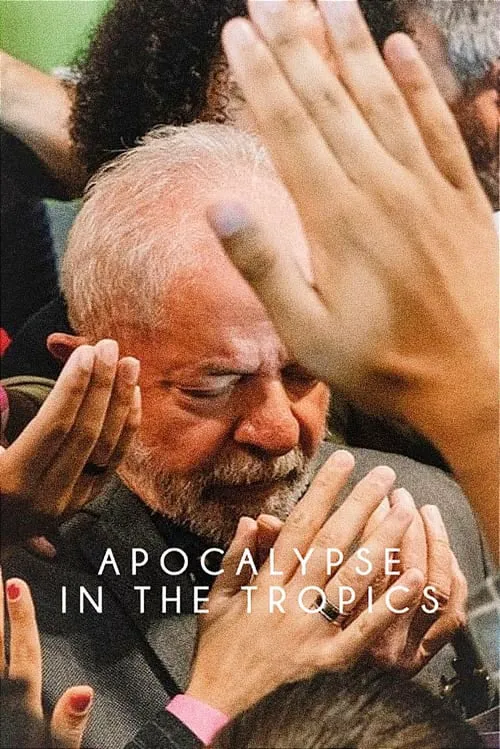Apocalypse in the Tropics

Plot
Apocalypse in the Tropics is a captivating documentary that delves into the rising influence of Christian evangelical leaders on politics in Brazil. Director Petra Costa masterfully navigates the complex and fraught terrain of Brazilian politics, gaining extraordinary access to top leaders, including President Lula and former President Bolsonaro. As she weaves her narrative, Costa raises essential questions about the blurring lines between democracy and theocracy in this vibrant and diverse nation. The film centers on the enigmatic figure of a magnetic televangelist, a charismatic leader who aspires to wield significant power over the far-right leader, Bolsonaro. This pastor's zeal and unwavering dedication to his faith make him a compelling and formidable figure, as he effortlessly commands the attention and devotion of his followers. Through intimate conversations and behind-the-scenes access, Costa humanizes the pastor, revealing the complexities and nuances that drive his actions. We witness the pastor's fervor and conviction, but also his ambition and desire for influence, which ultimately raises unsettling questions about the role of religion in politics. As Costa digs deeper, she reveals the intricate web of relationships between the evangelical leaders and the country's top politicians. She uncovers a disturbing trend: the increasing erosion of democratic values and the consolidation of power by those who see themselves as champions of a "Christian nation." This vision, according to the pastor and his followers, is not only morally superior but also divinely ordained. In this worldview, the boundaries between church and state dissolve, and the rule of law is subordinate to the will of God. Throughout the film, Costa confronts the complexities of Brazilian politics, where the lines between right and left, secular and sacred, are constantly blurred. She meets with President Lula, a former labor leader who has navigated the treacherous waters of Brazilian politics with skill and pragmatism. Lula expresses concern about the growing influence of evangelical leaders, warning that they pose a grave threat to the country's democratic fabric. His words are poignant, given the far-right leader Bolsonaro's own brand of authoritarian populism, which has emboldened extremist elements and created an atmosphere of fear and intolerance. The film also explores the historical context that has led to the rise of evangelical influence in Brazil. Costa visits rural communities where poverty, inequality, and social dislocation have created fertile ground for religious leaders to tap into people's despair and disillusionment. Here, the line between evangelism and exploitation is precarious, and the documentary raises disquieting questions about the manipulation of the faithful by those who claim to speak for God. One of the most striking aspects of Apocalypse in the Tropics is its nuanced portrayal of the complex relationships between Brazil's top politicians, the media, and the evangelical leaders. Costa's access is unprecedented, and she uses it to reveal the inner workings of Brazil's power elite. The film is a searing indictment of the ways in which politics and religion have become intertwined, creating a toxic blend of ambition, ideology, and self-interest. Yet, even as the documentary critiques the growing influence of evangelical leaders, it also seeks to understand the drivers behind their success. Costa meets with everyday Brazilians who attend the pastor's services and interviews those who have been drawn into the pastor's orbit. Their stories are heart-wrenching, revealing the deep-seated desires for connection, community, and meaning that drive their allegiance to the pastor and his movement. These testimonies also underscore the pastor's skill as a propagandist, able to channel the hopes and fears of his followers into a powerful narrative that legitimates his rule. Ultimately, Apocalypse in the Tropics is a thought-provoking and unsettling film that raises crucial questions about the future of democracy in Brazil and beyond. Director Petra Costa has created a cinematic tapestry that is both intimate and sprawling, offering a deeply personal and deeply troubling portrait of a country on the brink. As the film concludes, it is clear that the struggle to defend democratic values and principles is far from over, and that the stakes are higher than ever before in this increasingly divided and polarized world.
Reviews
Recommendations



